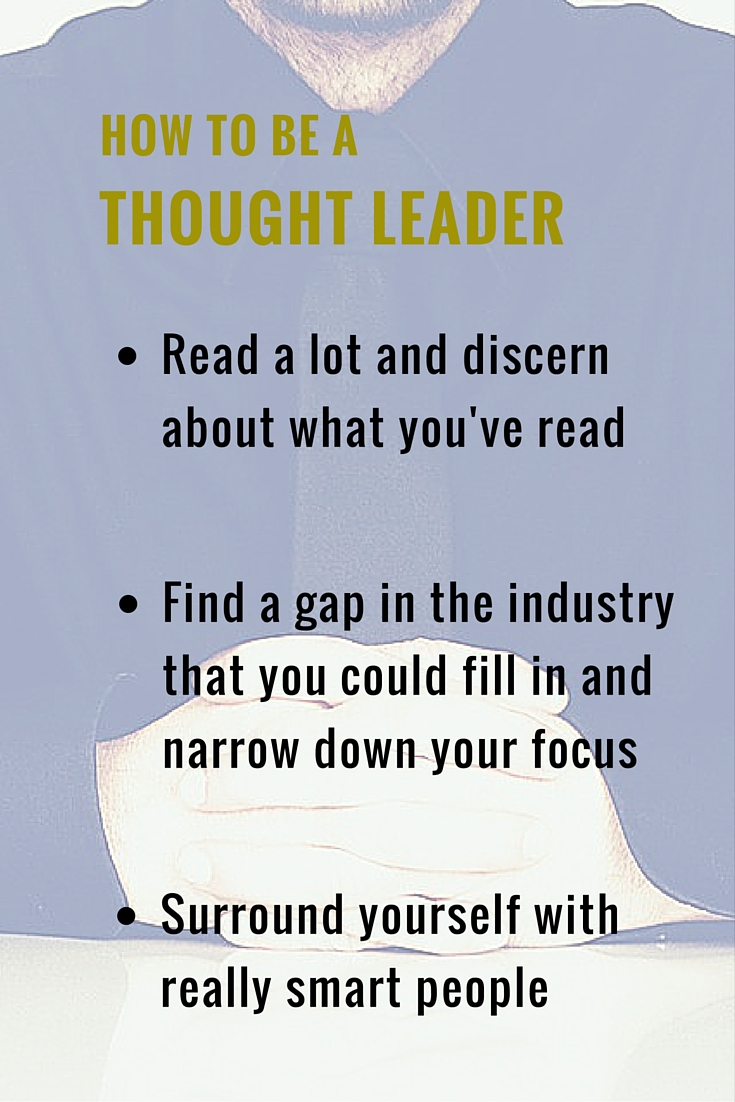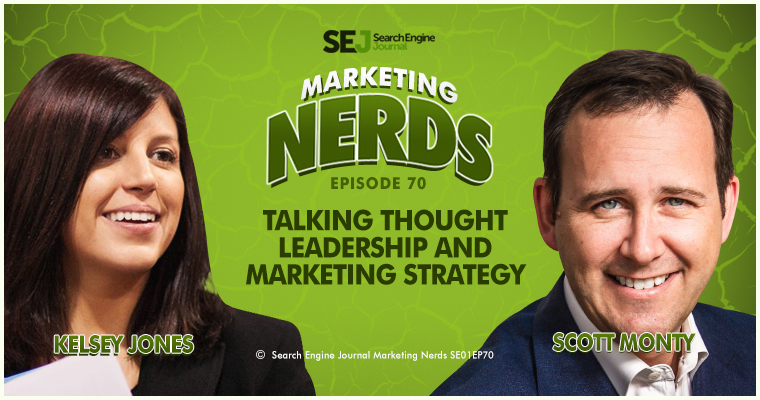Podcast: Download
Subscribe: Apple Podcast Google Podcasts Spotify
Visit our Marketing Nerds archive to listen to other Marketing Nerds podcasts!
Whether you are building yourself up as a thought leader, or you want to start implementing more marketing campaigns, it’s important to develop a strategy.
This is what I talked about with Scott Monty of Scott Monty Strategies on this week’s podcast. Scott was formally the head of social media at Ford Motor Company, and has since branched out to have his own consultancy and a chance to work with brands and organizations in several different industries. We touched on growing your personal brand, as well as social media strategy and Scott’s new newsletter, The Full Monty.

Here’s an edited transcribed version of our podcast, but be sure to listen so you can hear everything!
When you were starting out, what were some of the most important things you did to get you set on the right path?
That’s a good question. I think you can categorize this into 3 different areas. One is, I read a lot, and I was discerning about what I read, where I was getting my information from. It was a combination of things. It was online resources, could have been discussion forums, blogs, etc, and books. There were, and still are, a lot of books about marketing that come out every single year. You certainly can’t consume them all because there are so many of them.
It needs to be a focus. What gap are you looking to fill or what area are you really trying to become more well versed in, for example, and then follow that. It’s like collecting, you know. I do some book collecting and topics can be unnecessarily broad. The more you can narrow your focus the better off you’re going to be at becoming recognized as an expert in something.
Then, in addition to the online reading and the books, I just surrounded myself with really smart people. People I interacted with online back when Twitter was first a thing, if you can imagine a time before Twitter.
Just going to conferences and seeking out the people that I thought were, that stood out as thought leaders to me. Interacting with them and posing my own thoughts and my own questions on their sites, and after their presentations. Things like that. I just surrounded myself with extremely smart people.
The third element was, I eventually, and this was way back in, I think 2006 or so, started my own blog. Of course now you don’t necessarily have to own your own domain. You can certainly do it on Medium or Facebook Notes, but having a place to share your own thoughts is really, really important. To send people back to, to go broader and deeper than you can at 140 characters, or with a question after a presentation that’s just lost to time.
Yeah. I agree. When I was first starting out I just built a website and started writing, and that helped me get my foot in the door with some bigger publications, to start writing for them. Sites like Medium have gave a podium to voices that might have gotten lost.
It’s so much easier now, but I think the flip-side is, who owns your content? If you’re running your own site, and it seems almost an anachronism today as people aren’t spending time on individual sites. They’re spending it more on apps. The bottom line is, the sands can shift. We saw it happen with Facebook before. We’ve even seen it happen with, gosh I’m going way back here, there was a site called, it was Post Made, or Post Something. I knew people that had established blogs on there and that went out of business, you know. You’ve got to be prepared for that eventuality. If you own your own site, if you own your own content, you kind of withstand the shifting sands of time.
What you might be most well known for is your time at Ford when you headed up their social media. Do you think that setting yourself up as an influencer helped you get that position at Ford, or did working for a big brand helped you get visibility?
It was a bit of each. Ford approached me because I had already started to make a name for myself, because I was interacting with people, because I had a place where I was expressing my thoughts. They must’ve thought my thoughts were intelligent enough to pass muster there. It worked out well.
That got me in the door. I just continued doing what I normally did. Interacting with people, asking questions, providing information, you name it, and because I was associated with Ford, that obviously helped the scale there a little bit. People would pay attention to me a little bit more because I had the imprimatur of a large automaker behind me. It’s really difficult to separate the one from the other.
A lot of marketers sometimes are wanting to work for the big brands in order to get that kind of accolade, but I’ve also met several smaller consultants that are brilliant. Part of it too is what you’re looking to do and [what] you’re looking to have as clients as well.
Yeah, absolutely. My clients span from big multinational brands to startups. I also help agencies out as well. It’s a matter of just putting my knowledge to work. Having been on the corporate communications team for a global, Fortune 10 company, I was exposed to an awful lot, both PR and marketing. Traditional communications as well as digital communications. Obviously social media wraps all around that. Bringing that expertise to my new clients is … They’re paying for my experience as well as for my strategic leadership.
Since you started Scott Monty Strategies, what has been your favorite part of kind of branching out and going out on your own?
I think one of the most gratifying parts of going out on my own is the ability to continually improve my knowledge and to associate with, and coach, and learn from all different kinds of industries. When I was at Ford, obviously I was tied to a single industry, but what I tried to do on the outside was to keep up to speed with what was going on in the broader digital industries.
It’s absolutely critical to stay current on this stuff, and to stay ahead of it if you can. It’s just changing so quickly. Being out on my own and doing consulting, I’m continuing that kind of self teaching, and learning, and everything, and sharing that on a regular basis with my community. I’m also being exposed to really cool products, and ideas, and services through my clients.
What are your thoughts on building up a marketing strategy before the implementation? Because I’ve seen too many companies just kind of jump in feet first without a set strategy in place.
Yeah, and I think that’s the danger. Everybody sees these new platforms coming up, and seeing where the excitement is, and the latest craze, and the brightest, shiniest object, and it’s very tempting. I
t’s very tempting to just go and jump in to that. I didn’t name my company Scott Monty Strategies for nothing. To me, strategy has always been important. Even when I was at Ford counseling lots of different individuals and departments from around the entire company, they would come with an idea, typically a tactical execution. They’d say, “Hey, we would like to, boom, boom, boom.”
My initial reaction was, “Well, wait a minute. What are you trying to accomplish? Who are you trying to reach? How are you going to measure whether you’re effective?” In some cases they had thought of that already and they worked through it. In other cases they hadn’t. I think stopping and asking yourself those questions, and understanding strategically what is it you’re trying to achieve, and strategically how does it fit within the larger confines of your marketing strategy or your business process. Ultimately if you’re doing this stuff you’re not doing it just to make busy-work. You’re doing it to achieve some sort of business impact, whether it’s to be more efficient, or drive sales, or lower the cost of customer service, or whatever it is. It has to be tied back to some sort of business objective.
Do you think it’s important before even deciding to even try something to have a strategy, or is it worth it to kind of dip your feet just to see if there’s any interest? E.g. live streaming. With trying something new, should you have a set strategy in place before you try a new platform?
Well, it depends on what your business strategy is. If your strategy is to be a thought leader and to be seen as cutting edge, then it’s important to be there as quickly as you can.
I wouldn’t just argue, you know, opening an account and starting to stream video with no thought behind it. To me, the danger of live streaming video is the same as, oh I don’t know, like when Instagram, or even pictures when Twitter first started. What are people really taking pictures of? Is it really that interesting? For live video, what are you doing that transports someone to a place and time where they can’t otherwise be? If you’re interrupting them live, or expecting them to follow you live, it better be compelling content, right? You should at least have thought that through before you open that app. At the same time [you need to consolidate] your efforts. You need to concentrate on how you want to stand out. There are way too many “social media experts” out there.
I bristle every time I hear the term, especially when the term is applied to me. While I certainly can do social media it’s not all I can do, and I hardly view myself as an expert. If others want to call me that, so be it, but there’s almost a snake-oil salesman comparison to “social media expert” out there. Primarily because so many of the “social media experts” have never actually practiced it for a brand. A lot of them, just because they’re good at Facebook, or they’re good at Twitter, or whatever, think they’re experts.
To me, the true expertise comes with applying strategic knowledge and understanding how it fits in to the broader business picture. If you can figure that out, and you can start providing value along those lines, and again, be as specific as you can. I do a newsletter every week that is basically a set of curated links with analysis and commentary that I provide as a service. I’ve become well respected and known for putting out this weekly content. It’s not stuff that I write myself. I mean, I certainly put the newsletter together, but the content that I send out is a conglomeration of all the things I see throughout the week that I think would be useful to other people. My value is the utility that I bring to my subscribers. Some people find that incredibly valuable because it saves them time, other people find it important to share with their team. I’m basically enabling them to be the heroes to their organizations. If I can do that and be known for that then I’m happy with that kind of thought leadership.
When you’re building yourself up, think about something that makes you different. I’m recording another podcast this month with Katy Katz about fitting in a niche. It just depends on what there’s a need out there for. Getting a newsletter from someone like you with your analysis is a great way to kind of help people cut through the clutter and figure out what’s important.

To listen to this Marketing Nerds podcast with Scott Monty and Kelsey Jones:
- Download and listen to the full episode at the top of this post
- Subscribe via iTunes
- Sign up on IFTTT to receive an email whenever the Marketing Nerds podcast RSS feed has a new episode
- Listen on Stitcher
Think you have what it takes to be a Marketing Nerd? If so, message Kelsey Jones on Twitter, or email her at kelsey [at] searchenginejournal.com.
Image credits: Featured image by Paulo Bobita, other image via Shutterstock




